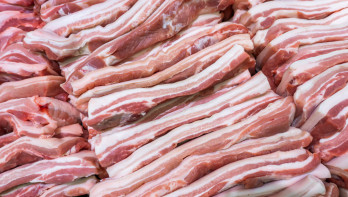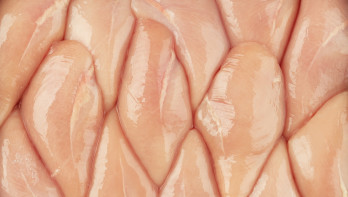News Insights
Profit at growing Van Loon Group lags behind
Van Loon Group saw its turnover exceed the €1 billion mark for the first time last year, but the profitability of the meat company barely stayed on the right side of the line. This is evident from the annual report that was deposited at the Dutch Chamber of Commerce at the end of last month. However, the solvency took a significant leap upwards.
CEO Robert van Ballegooijen commented on a year in which good steps were taken in view of the long-term agenda of the family business, although the results were nevertheless disappointing.
Profit further down
Last year, the turnover increased by €64 million to €1.061 billion. Due to rapid expansion in recent years and high inflation, it was only a matter of time before Van Loon Group would become a billion-dollar company. The gross profit also shows an improvement. However, the net result amounts to a meager €387,550. In 2022, the profit was €3.33 million, which the company was also not satisfied with. In the years before, the profit figures were much more generous.
Low margins
Van Ballegooijen points to the limited margins in the meat chains as the cause of the low profitability. "This concerns not only slaughterhouses and processors, but also retailers. Livestock farmers currently have acceptable revenues, which they deserve." According to the CEO, raising meat prices is not the solution for more financial breathing space in the chain. "We must ensure that meat does not become a luxury product that is no longer consumed on a daily basis. Even with increased wages, consumers still find meat expensive today."
Van Loon Group seeks to improve margins mainly by reducing costs and further collaboration within the supply chain with customers and suppliers. In 2023, the former production locations of Promesse in Deventer and Van Loon in Almere were closed as part of cost reduction, and the activities of the companies in Nuth were merged. Staff cuts were also made. In addition, several acquisitions were made to better position the company for the future. The Belgian Q-Group was acquired, as well as meal producer Maître. "Restructuring costs money, and costs often precede benefits in acquisitions. This partly explains why our profitability in 2023 is not at the level we strive for."
Hybrid meat
Another strategic step Van Loon Group took last year was to exit the meat substitutes market due to lagging sales figures. The company sees much more potential in hybrid meat, where meat and plant-based ingredients come together in a product. Recently, Van Loon Group also acquired the butcher activities of supermarket chain Hoogvliet. Van Ballegooijen indicates that Van Loon will continue to look for possible acquisitions in the current consolidating meat market.
He points out the robust balance sheet of the family business with a solvency of over 50%. Thanks in part to balance sheet reduction, this key figure improved significantly last year. They are also on track to meet the Paris climate agreement. Recently, Van Loon announced that it will make the CO2 footprint fully transparent and commit to further reduction.

Wouter Baan
© DCA Market Intelligence. Op deze marktinformatie berust auteursrecht. Het is niet toegestaan de inhoud te vermenigvuldigen, distribueren, verspreiden of tegen vergoeding beschikbaar te stellen aan derden, in welke vorm dan ook, zonder de uitdrukkelijke, schriftelijke, toestemming van DCA Market Intelligence.


